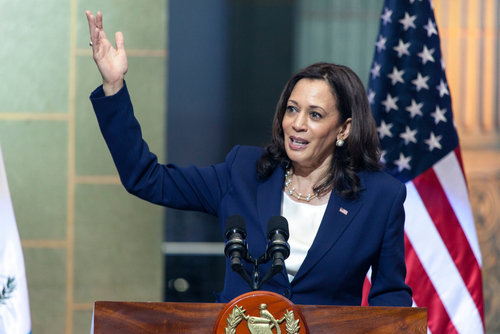Facebook parent company Meta is facing renewed scrutiny after revelations about its content moderation practices aimed at protecting Vice President Kamala Harris from criticism. According to a recent undercover investigation by the O'Keefe Media Group, a senior Meta engineer, Jeevan Gyawali, confirmed that the tech giant deliberately demoted posts critical of Harris, particularly those questioning her fitness for office. The revelation raises concerns about political bias and censorship during key election cycles.
The investigation captured Gyawali discussing how Meta’s algorithms suppress content, a practice he described as “automatic demotion.” For example, if a post claimed Harris was unqualified because she doesn’t have children, the platform would algorithmically reduce its visibility without notifying the user. Gyawali admitted that the company uses tools like “civic classifiers” to flag such posts, limiting their reach and engagement, effectively shadowbanning users without their knowledge.
SHOCKING 😮 James O Keefe exposed Meta shadowbanning anti-Kamala posts on Facebook and Instagram. Here is their software engineer saying the person who posts anti Kamala content are redlisted. 😲 Mark Zuckerberg approves this to help the Democrats???#ElectionInterference pic.twitter.com/8ZWmZiFlX8
— Jd (@pointsofviewje) October 17, 2024
This is not the first time Meta has been accused of playing a partisan role in U.S. elections. The company has come under fire for actions that critics argue favor the Democratic Party, leading to claims of election interference. Gyawali’s remarks go a step further by revealing that Meta’s CEO, Mark Zuckerberg, fully supports these moderation strategies. Notably, the company’s “Integrity Team” has a Special Weapons and Tactics (SWAT) team that reportedly handles politically sensitive situations, especially during election periods.
The revelations about Meta’s practices have sparked outrage among conservatives and advocates for free speech, who argue that the tech giant is overstepping its role by manipulating the flow of information to favor certain political figures. Elon Musk, owner of X (formerly Twitter), added fuel to the fire with a cryptic tweet, “Hmm,” after the revelations went viral, further highlighting the broader concerns about social media platforms’ influence on public opinion.
Enough Kamela, we are ready to turn the page . . . on you. You have destroyed our economy, our country, and our social fabric.
Who agrees?👇 pic.twitter.com/KrwT3iYYeb
— Kathy Fisher (@Kathy_BFisher) October 18, 2024
James O'Keefe, the founder of the O'Keefe Media Group, has been instrumental in exposing what he calls “Big Tech collusion” with the Democratic Party. His investigative team has uncovered similar instances in other tech companies. A recent example involved a Google official admitting that the search engine had manipulated ads to favor Kamala Harris by creating the appearance of neutral news reports while promoting her campaign agenda. These actions, critics say, point to a coordinated effort by powerful tech companies to shape election outcomes in favor of one party.
Meta’s admission comes at a time when the public is increasingly skeptical of the role big tech companies play in curating political content. This skepticism reached a boiling point after Facebook and other platforms were accused of suppressing stories about Hunter Biden’s laptop during the 2020 election. In the case of Harris, Gyawali’s comments only add to the perception that Meta actively censors viewpoints unfavorable to high-profile Democrats.
The ongoing controversy has renewed calls for greater transparency and regulation of social media platforms. Lawmakers from both sides of the aisle have raised concerns about how much power these companies wield over the political discourse. While Meta maintains that its moderation policies are intended to reduce misinformation and harmful content, critics argue that the policies disproportionately target conservative voices and opinions.
Meta has yet to officially respond to the latest revelations. However, the company has previously defended its content moderation practices as essential to maintaining a safe and reliable platform, especially during high-stakes elections. Nonetheless, the revelations are likely to deepen the growing divide between conservatives and Silicon Valley, as questions about election integrity and the role of social media in shaping public opinion continue to mount.

